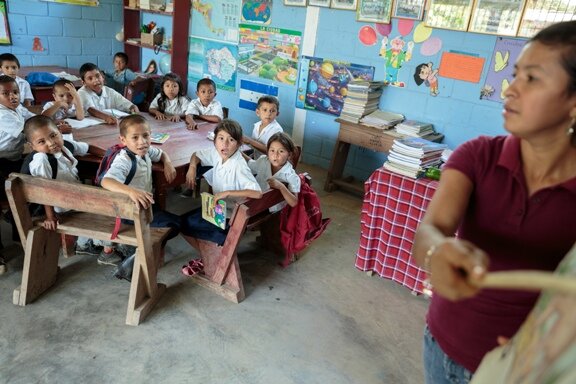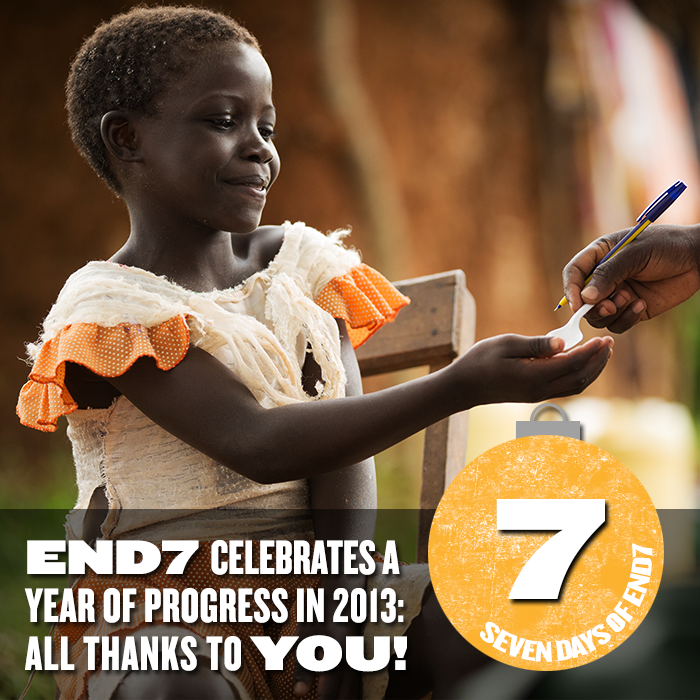
Photo by Olivier Asselin
By Dr. Mirta Roses Periago, NTD Special Envoy
This August, the END7 campaign asked for your help in treating more than 1 million school children in Honduras for neglected tropical diseases (NTDs) – and I’m a happy to share that the joint effort was a success! Your donations helped ensure that 1,051,659 children in 11,576 public schools remain free from harmful parasitic worms for an entire year. On behalf of these children, their families and communities, I stand with END7 in saying thank you – ¡Muchas gracias!
You helped support Honduras’ national deworming campaign for school-aged children, which spanned throughout 18 states and 298 municipalities within the country. A strong collaboration led by the Ministry of Health of Honduras, with support from the Ministry of Education, the Healthy Schools Program, the Pan American Health Organization (PAHO), the World Food Programme (WFP), Operation Blessing, MAMA Project and the END7 Campaign drove the campaign forward.
The campaign reached 88.6% of the children targeted for treatment (524,472 girls and 528,736 boys). And this effort was about more than just pill distribution. The Ministry of Health equipped health workers, volunteers, school personnel and partners with the knowledge, tools and training they need to implement additional campaigns in the years to come – ensuring that children are continually protected from intestinal worms which sap their energy, keep them with anemia and malnutrition and impair their capacity to grow and learn, thus perpetuating a life in poverty.
Embodying the “train the trainer approach,” health personnel at the regional level trained elementary school teachers in 298 districts, who in turn, trained parents on measures to prevent the transmission of soil-transmitted helminths (STHs, or intestinal parasites), amplifying the protection of children throughout the country.
Because NTDs are spread by unsafe water sources and inadequate hygiene and sanitation, the deworming campaign promoted hygiene education among children by demonstrating proper hand washing techniques as a way to prevent future infections. And because some schools in the poorest areas didn’t have clean water, four water filters were installed in the municipalities of Marcovia and El Triunfo in Choluteca states, where 100,461 people will benefit from the equipment. The water filters will ensure the water drank by these school children is clean and free from parasitic worms.
Honduras is the first country in the Latin American and Caribbean region to launch a national plan addressing these diseases. Since the launch of the plan in 2012, in addition to scaling up its national deworming campaign, the Honduras Ministry of Health and its partners have developed eight department level operational plans and trained personnel from each department on NTD control-related activities.
This year, you helped END7 create a better future for more than a million school children in Honduras. But they’re not stopping there. With continued support from people like you, END7 is working to make sure these children continue to receive treatment year after year. Get involved in the movement by visiting www.end7.org. Together we can see the end.









